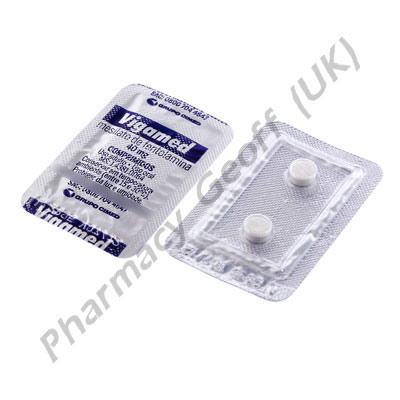
Our price: £28.98
Phentolamine
Phentolamine and Erectile Dysfunction
Phentolamine (Vigamed) is a treatment for erectile dysfunction. It helps treat impotence and ejaculatory problems by improving blood flow to the penis causing arousal. Phentolamine is often used by patients who have tried other treatments unsuccessfully first. Phentolamine can also be used to prevent high blood pressure.
Phentolamine and Hypertension
Phentolamine is prescribed to help with controlling hypertension (high blood pressure). Phentolamine can also be used to prevent high blood pressure. This particular type of medication is used for the reducing the chances of hypertension occurring during pre-operation procedures and the actual surgical procedures that someone may be going through.
Taking Phentolamine before surgery
Phentolamine is given through an injection in the period of time prior to the operation taking place. The blood pressure will be closely monitored, and that will determine the amount of Phentolamine to offer. Some patients require very little and others will need more than one injection before it is all over with so that can keep their blood pressure levels regulated.
Phentolamine is often recommended because during various types of surgery there can be a spike in blood pressure. By keeping it regulated though, it can be a method of further reducing the chances of various problems occurring during the surgical procedure. The use of this medication can help to reduce the risk of any serious side effects occurring during the surgery. The use of this medication will wear off during the recovery stage of the surgical procedure.
Phentolamine Contraindications
The use of Phentolamine isnít recommended for anyone that has a history of serious heart problems. There is a risk that the use of this medication could create an increased amount of stress on the heart. It is very important to disclose all medications that are being used before your surgery. Not all of them will be a good match with Phentolamine. You should go over that list with your doctor well before your date of the surgery. Some of them you may be able to take, but others you may have to wait until after the surgery has been completed.




 Categories
Categories